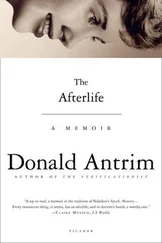In the meantime, to irritate Bernhardt — and to get him back for using an old nickname that I’d rather not hear — I said, “I agree with Maria. Manuel is one of our important thinkers.”
After that I felt depressed, as I knew I would after praising an associate, or even an intimate.
In fact, Escobar is a shrewd, insightful, compassionate therapist. One might wish he would become less involved in patients’ lives outside the consulting room (the recent, unsettling incident with Mrs. Jackson and the countersigned insurance claim checks comes to mind); however, Escobar is a European. His unorthodox, interdisciplinary methods naturally reflect some sort of traditional cultural orientation.
“You’re that party of doctors from the mental institute, aren’t you?” Rebecca said.
“That’s right,” answered Bernhardt, giving me a wonderful chance to contradict him on a fine point. I knew I shouldn’t’ve — you have to watch your step with Bernhardt; he’s grandiose and will lose his temper and, on occasion, shout — but it was irresistible.
“We’re not doctors. At least, I don’t think anyone at our table has a medical degree,” I said, looking around at the faces of my companions.
Bernhardt said, “Tom, I don’t know about you, but I have a Ph.D. in clinical psychology.” Food had not yet been served, and already Richard was getting worked up over genital potency issues.
I explained to our waitress, “It’s true that we are clinical psychologists. Those with doctorates may call themselves doctors if they choose, but most of us, except Sherwin of course, are not doctors in the way that people routinely think of doctors.”
She — bless her heart — recalled, “I had this jerk for a history teacher in eleventh grade. He got a Ph.D. through the mail or somewhere and then made everyone call him Doctor Woody.”
“My Ph.D. is not mail-order.” Bernhardt’s face beneath his panama hat was suddenly, brilliantly red.
“Richard, it’s all right. Take it easy.” Maria reached across the tabletop and stroked Bernhardt’s sleeve, lightly, reassuringly, professionally.
“How can I take it easy? Tom has no idea how to get along with peers. I worked hard for my Ph.D. It gets so I’m afraid to take pride in my accomplishments.”
“Tom didn’t mean to hurt your feelings, Richard. I’m certain he respects your credentials. Isn’t that right, Tom?” asked Maria, the diplomat.
“Sure.”
At that point, more analysts barged in. Peter Konwicki, Elizabeth Cole, Dan Graham, Terry Kropp, Mike Breuer — and Dr. Sherwin Lang, the gynecologist turned psychiatrist, whose relationship with alcohol may or may not have been getting in the way of his relationships with analysands. Greetings were transacted, and the Bernhardt situation was momentarily defused as, one after another, adjacent tables filled with personnel. Someone put money in a tableside jukebox and a popular tune played. The waitresses in their blue dresses came and went, shouldering dinner plates and metal trays stacked with silverware. Our waitress approached and said, “Ready, Doctors?”
“Two eggs over easy with hash browns and extra cinnamon-raisin toast with butter on the side,” said Bernhardt.
“The country sausage and eggs, I guess,” Maria said next.
“How do you want your eggs?”
“Scrambled. Please.”
Manuel requested more coffee, nothing but black coffee, and then it was my turn.
“Well, I’m torn between the blueberry pancakes and the eggs Benedict. Are the blueberries fresh?”
“Yes, sir.”
“Treat yourself to pancakes, Lieutenant,” said Bernhardt.
I explained, “I like pancakes, but with pancakes a little goes a long way. They leave me feeling stuffed.”
“I know what you mean.”
“On the other hand, whenever I have the chance to order them, and I don’t, I regret it.”
Rebecca waited. My Institute associates glared at me, and the noisy room got, I thought, quieter. I was in danger of acute vacillation and could feel my face growing hot, the skin tingling. Choice, with its inevitable invitations to loss, is always such a trial. It does not matter, in my experience, that a particular choice consists in apparently unweighty alternatives. Quite the opposite. Choices between banalities are some of our more intimidating ordeals in life. We all know how the simplest dilemmas can lead, through symbolic and emotional pathways in the unconscious, to larger, often painful issues facing us at work and at home. Let’s take an example, a hypothetical case, from home. Or, better yet, let’s not. A discussion of theory can only be weakened by intimate, possibly humiliating revelations. The simple example I was going to give — involving an unpainted room and a drawer full of paint chips in assorted pastels and flat whites — is not only not simple, it is loaded to capacity with marital sorrows and the profoundest mysteries of destiny, accident, and the overall purpose and meaning of life. Here’s what I mean. I will attempt to remain objective. An upstairs room needs painting. The room is quite cozy, with attractive floors and a view of trees and neighboring yards. But its walls, blemished with scuffs, spackle, and dirt, have been an eyesore for a long, long time — ever since the present owners (Jane and I, naturally) first occupied this little house (17 Granite Farm Road, second on the left after the empty, boarded-up community center swimming facility, where neighborhood teenagers go to have sex and smoke dope), this little house with its blazing-red front door and “stovepipe” mailbox and the handsome attic dormers that remind you, as you climb the drive bordered by stone fences left from times when these hills were farm country, of ships’ portholes. It will take an afternoon, two at most, to prep and paint the room behind the pretty windows. Painted, the room might be comfortably used as a small, sunlit study. Nevertheless, years have passed and the room remains vacant, destitute, unclean; its door is rarely opened. Downstairs, in the kitchen, beneath knives in a drawer, lies a manila envelope holding paint chips. Colors range from the cool whites and baby blues to lemon yellows and delicate salmons. The wife in question (Jane) insists any color is fine with her. Her (Jane’s) husband (I) secretly suspect(s) this is not the case. He (I) think(s) she (Jane) wants a sturdy, masculine blue, because he (I) feel(s) that she (Jane) is secretly hoping for a baby (ours) to live in this room, and he (I) suspect(s), judging from other things known about her (the wife) — things better not explored in depth at this moment — that she (my beloved) would, without a doubt, favor a boy. I (a boy myself, once; currently a grown man who, like all men, experiences many conflicts, doubts, and insecurities in life) have (has) the usual, probably stereotypical fears and reservations about infant children and boys in particular — the added financial strain; the inevitable displacement of the man (me again!) by another (my own baby boy, no less), leading to diminished sexual relations, growing jealousy, fits of general desperation, and eventual panic, leading (if I know myself at all) to flight (most likely to one of the chain motels along the highway leading west from town) as a form of retaliation, followed in due course by return, contrition, reconciliations, the conscience-stricken attempts at repair, and, finally, resumed couples counseling with Maria — as well as certain distinctly personal terrors that derive from my own history as a child coming of age in an environment (home of origin, with all its problems) that is currently being reviewed and, to large extent, relived — in my marriage, in my work with patients, in my own ongoing analysis with old Dr. Mandelbaum — an environment in which I (the gloomy, doubting boy I once was) obviously failed to reach the depressive position and subsequently develop a number of the crucial interpersonal insights and skills associated with mature behavior. This is not, as you can see, turning out to be a particularly simple example — the unpainted room as repository of unspoken thoughts, symbolic home and playroom to unborn generations that will supersede and finally bury us when, ancient, decrepit, and delirious, we die — especially when you consider the ways that inner conflicts manifest, in close relationships, as vulnerabilities. Jane reflexively accommodates my fears and desires, as I do hers; together, man and wife, we collude in a mutual conspiracy to shelter and protect one another from our own and each other’s inevitable and final abandonment. The simple question “What color do you want to paint that upstairs room?” might, if we follow things to their logical conclusions, be stated: “How do I live, knowing that I will one day die and leave you?”
Читать дальше












